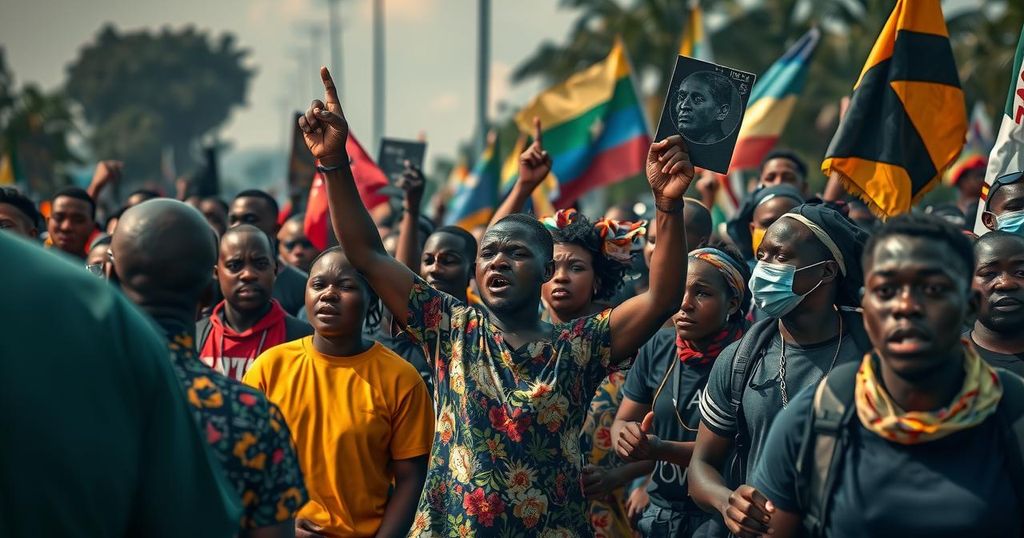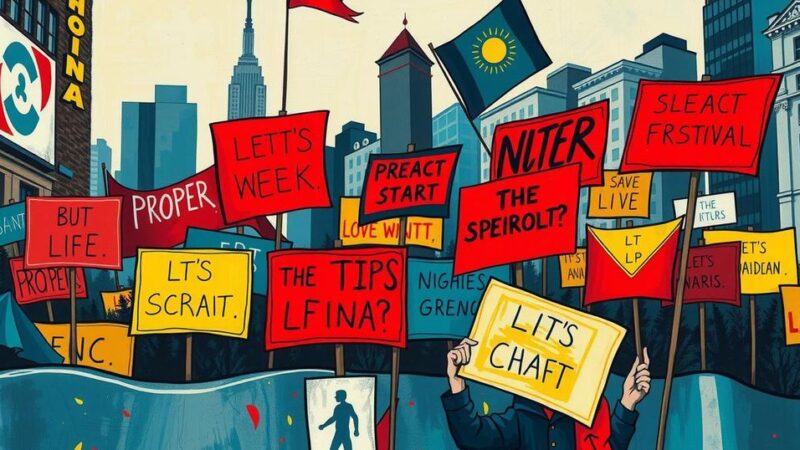In West Africa, protests are increasingly dangerous due to excessive violence from law enforcement, resulting in numerous fatalities and injuries. Amnesty International states that this brutality emphasizes the weakness of state power rather than its strength, with regional authorities needing urgent reforms to uphold human rights. The climate of repression stifles dissent and undermines public trust, necessitating immediate structural changes in governance.
In West Africa, the act of participating in protests is fraught with danger as authorities frequently respond with excessive force, often resulting in fatalities or severe injuries. Organizations such as Amnesty International highlight that such violence reflects the fragility of state power rather than its strength. This trend has been alarming across several nations, including Mali, Guinea, and Sierra Leone, where the illegal use of force by law enforcement during peaceful demonstrations continues to rise.
Demonstrations against governmental policies have led to numerous casualties, revealing a disturbing pattern of repression. For instance, Senegal witnessed at least 65 fatalities from protests in the lead-up to the presidential elections between March 2021 and March 2024. Furthermore, Guinea has reported over 113 deaths linked to protests against the regime, exacerbating the climate of fear and repression. Other notable examples of violence during protests include the tragic events of August 2022 in Sierra Leone, where 27 individuals lost their lives during rallies in response to escalating living costs. In essence, these acts symbolize a broader crisis concerning state authority and the handling of civil dissent.
This alarming trend indicates a regression in civic freedoms, exemplified by the suppression of political parties and arbitrary prohibitions on protests across the region. Authorities have resorted to imposing sweeping bans on demonstrations under dubious pretexts, culminating in the arbitrary detention of activists and journalists while stifling media freedoms. The prevalent impunity enjoyed by security forces further fosters an environment of violence, as the rule of law is undermined, and state actors evade accountability for their actions.
The international principles governing the use of force stipulate necessity, proportionality, and non-discrimination; however, such fundamental tenets remain disregarded. Reports reveal that official investigations into violence committed during protests are insufficient, often culminating in no substantial legal repercussions. This environment not only endangers the lives of peaceful demonstrators but also perpetuates a narrative of state weakness, where citizens harbor mistrust towards their leaders, further destabilizing the region.
In conclusion, the brutal repression of protests in West Africa showcases a troubling reality: governmental strength is increasingly characterized by violent suppression rather than legitimate authority. This critical situation necessitates urgent action from regional authorities to uphold human rights, combat impunity, and foster an environment where citizen voices are heard and respected. Ignoring these issues only further alienates the youth and deepens the wounds within societies seeking change and accountability.
The ongoing turmoil in West Africa highlights a disconcerting trend of governmental repression against dissent, particularly during protests. Amnesty International’s latest findings underscore the alarming frequency of police brutality and excessive force employed against civilians expressing their discontent. This has created a climate of fear, particularly for young people, who account for a significant number of casualties in these conflicts across various nations.
The situation in West Africa necessitates immediate attention from both national and international bodies to address human rights abuses and restore public trust in governance. Authorities must shift from violent suppression to legal accountability for security forces to rebuild societal trust and enable constructive dialogue. Strengthening civic space and protecting the rights of demonstrators is essential for the region’s future stability and democracy.
Original Source: www.amnesty.org






